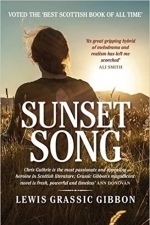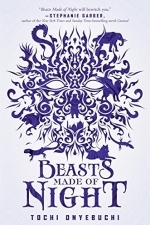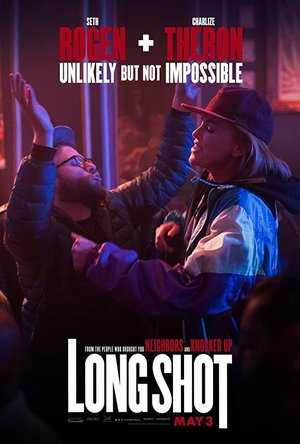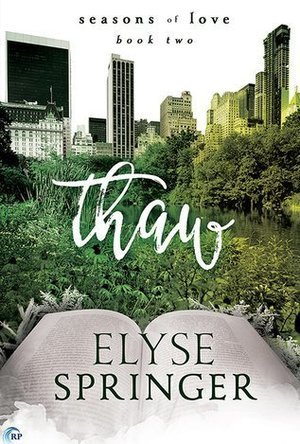
Diary Journal - Easy & Best Voice Record Meeting Notes Vault Private Events Own Picture Background & Social Buzz
Food & Drink and Lifestyle
App
***** Top Quality and Rich Features of Lifestyle App ***** Works on iPad1 & iPad2 Now new version...

Sew Magazine – your complete guide to sewing, stitching and embroidery
Lifestyle and Magazines & Newspapers
App
If you love to stitch, or want to learn, then Sew is the magazine for you! Jam-packed full of...

HERE WeGo - City navigation
Navigation and Travel
App
HERE WeGo is a free app that makes city navigation effortless. With detailed routes, turn-by-turn...

GPS-Tracks for iPhone
Navigation and Travel
App
Multimedia-Tour guide with Topo maps for the european alpine region. GPS-Tracks for iPhone is...
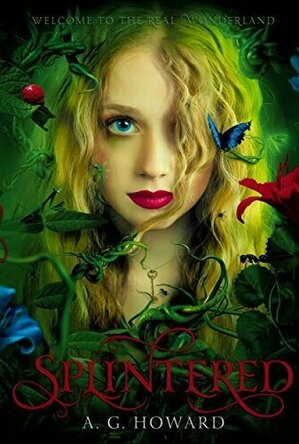
Splintered (Splintered, #1)
Book
This stunning debut captures the grotesque madness of a mystical under-land, as well as a girl’s...
Eilidh G Clark (177 KP) rated Sunsett Song in Books
May 14, 2017
Goddess in the Stacks (553 KP) rated Beasts Made of Night in Books
Apr 19, 2018
Oh and he winds up landing in an ivy maze out of nowhere - he couldn't see it from the palace? Let's see....the King regularly bombards neighborhoods with catapults in what's called a "baptism" but the people haven't revolted against this, for some reason. They talk about something called a "kanselo" but never define it. I -think- it's like an organized group or coalition, but I'm really not entirely sure.
The male protagonist treats every woman his age as a potential love interest, debating whether to give them his heart-stone, or whether people will think he's already given one girl or another his heart-stone - but never stops to ask if the girls are interested in HIM that way. Because of COURSE they would be, right? He's the Sky-Fist! The Lightbringer! The one whose tattoos never fade! (Eating sin-beasts causes a black tattoo to appear on your skin - on most sin-eaters these fade eventually.) Also he's just DUMB. He recalls that the sin-eater who ate his mother's sin had a certain tattoo, and when he runs across her years later, it takes him three or four encounters before realizing it's the same sin-eater. (The tattoo is a spider. Covering her FACE. It hasn't faded.) He makes stupid decisions - after nightmares of one love-interest being attacked by sin-beasts, he LEAVES HER SURROUNDED BY THEM to go run out into the city. He has at least FIVE love interests in this book. And only ONE of them seems interested in him in return.
I really wanted to like this book. The concept of sin-eating is great. But the main character and all the one-dimensional characters that surrounded him, along with the confusing geography, just turned me off. And I'm not even getting into the "ending." Yeah. Definitely throwing quotes on that because that was not an ending. The book just stops.
Skip this. It was a terrible book wrapped in a deceptively pretty package.
You can find all my reviews at http://goddessinthestacks.wordpress.com
Phillip McSween (751 KP) rated Long Shot (2019) in Movies
Apr 29, 2019
Acting: 10
Beginning: 10
Characters: 10
In Long Shot, Seth Rogen plays the role of Fred Flarsky, a journalist committed to reporting on the right things, or at least his version of what’s right, anyway. He’s daft, but not stupid. Timid for the most part, but knows how to seize an opportunity when necessary. Charlize Theron is Charlotte Field the Secretary of State, a strong woman who stands up for herself, but also knows the necessity of “playing the game” sometimes. Charlotte and Fred work so well together because they are polar opposites, but also share some strange interests. I can’t lie, I’m a sucker for most roles Rogen plays. If Chris Hemsworth is a reminder that we need to hit the gym, Rogen is a reminder that your plain old average self will do just fine, thank you very much. He is the Every Man of everymen. You want Fred to succeed not just because he’s an underdog, but also because he’s cool as hell.
Charlotte is dope too, but in a different way. I love that she takes no crap, but also has a soft spot and a willingness to give others a chance. It wasn’t hard for either of these characters to win me over.
Cinematography/Visuals: 10
Conflict: 2
The movie falters a bit here, at least in my opinion. I’m sure there may be others that feel differently, but I didn’t really feel much strong opposition over the course of the movie. I would elaborate, but will stop short here as I don’t want to give away too much of what too expect.
Genre: 9
As I kept thinking of what I would score this film on the drive home, I found new reasons to love the movie. When I look at a number of other movies in the genre, it definitely stacks up. it’s one of those movies you can watch regularly and not get bored.
Memorability: 9
Pace: 9
Director Jonathan Levine moves the story along at a smooth pace that is pretty consistent save for one or two “meh” spots along the way. It’s funny throughout and continues to make you laugh right as you start to get the sense things will die down. Fred is a bit of a wild card as well as you look forward to seeing what crazy crap he will get into next.
Plot: 4
Resolution: 10
Great ending with a bit of a twist that really brought the funny. After watching this journey, I couldn’t have been more satisfied with how things ended up. Predictable yet perfect at the same time.
Overall: 83
I have no doubt you will have a fun time seeing Long Shot. Even if you feel like you’ve been down the road before or you know what’s waiting at the end of the road, see it anyway. There is a certain amount of originality here that makes the movie well worth the ride.
Kristy H (1252 KP) rated Thaw (Seasons of Love, #2) in Books
Feb 13, 2018
This novel definitely follows the trope of a regular gal falling for the rich, remote, often angry lesbian: you have to surrender yourself to that and you'll enjoy the book more (much like watching a romantic comedy). There is a little too much focus at times on the fact that Gabrielle runs hot and cold, and her personal dynamics can be slightly weird at points. Still, even while occasionally annoyed, I found myself intrigued and interested at her reticence and wondering at its cause.
However, the real star of this show isn't Gabrielle, but Abby. Abby is just a real sweetheart. She's truly the force of the book. I personally identified with her and adored her love of books, avoidance of makeup, and general introverted self. She was a well-written character, and I found myself wanting to protect her. The fact she's asexual is interesting, and it really cast a light on a sexual orientation that I knew very little about. It was a good learning experience, honestly.
Much like said romantic comedies I mentioned earlier, a lot of this plot is predictable, but the book was written well-enough that I didn't mind: it's what I had signed up for, after all, and I was happy to be along for the ride. I still was really excited for the outcome and read the entire thing in about 24 hours. Besides, the novel has a hidden depth to it, giving us an interesting commentary on society's expectations about sex and relationships. Plus, Springer inserts some hidden inside jokes about books, literary series, and such. A lot of the novel just made me smile, between Abby, the asides, and the overall resolution. It was surprising and for the most part, very enjoyable. Probably a 3.75 stars, but bumped up to 4 stars due to the way it made me feel. I will definitely seek out the other novels in Springer's Season of Love series (this was actually #2, but it seemed to stand-alone just fine).
I received a copy of this novel from the publisher and Netgalley (thank you!) in return for an unbiased review; it is available everywhere as of 04/24/2017.
<center><a href="http://justacatandabookatherside.blogspot.com/">Blog</a>; ~ <a href="https://twitter.com/mwcmoto">Twitter</a>; ~ <a href="https://www.facebook.com/justacatandabook/">Facebook</a>; ~ <a href="https://plus.google.com/u/0/+KristyHamiltonbooks">Google+</a></center>;
Ugh, this book. Some of it was enjoyable, and yet so much of it was just so damn frustrating. First of all, the entire thing seemed like it was based on just a mountain of stereotypes and tropes. Emma has built-in stereotypes and preconceived notions about Dominic (a bartender can't be anything like a banker, apparently, or share any of the same interests). Every woman in the banking world is a vapid idiot except Emma. All New Yorkers just want to get married and move to the suburbs. And so on and so on. It gets really old after a while.
Then, the whole different worlds thing: Emma versus Dom style. As a moving forward plot device, it just seemed incredibly forced. I understand that the "we're from two different worlds" idea still exists today, but really? It's that hard to overcome that a woman considers just dropping the only guy who has ever made her happy, because he seems beneath her? It would be different if the book put forth some real reasons that their class differences threatened their relationship, but it really doesn't. It's all half developed and mostly based on Emma's speculation.
That brings me to Emma. I wanted to like Emma. I could see a lot of Emma in myself - a quiet introvert who doesn't take well to people, who needs time to warm up. I understand that. But oh my gosh, she drove me crazy. So wishy washy! So indecisive! So unable to just follow her *own* thoughts and feelings. She drove me insane. It's very hard to fully enjoy a novel where you often want to wring the neck of the main character.
All of that, truly, I could have probably forgiven if Green hadn't taken the plot off the deep end near the end of the novel. I was so irritated and so upset: I went through all of the above for THIS? I won't spoil it, but let's just say I didn't sign up for a Nicholas Sparks novel. Any of the novel's redeeming qualities (a cute cat, a somewhat cute kid, Emma's dad) went out the window.
Overall, I just didn't enjoy this one. Too much of the plot devices irritated me, and then-BOOM-the actual plot drove me over the edge.
